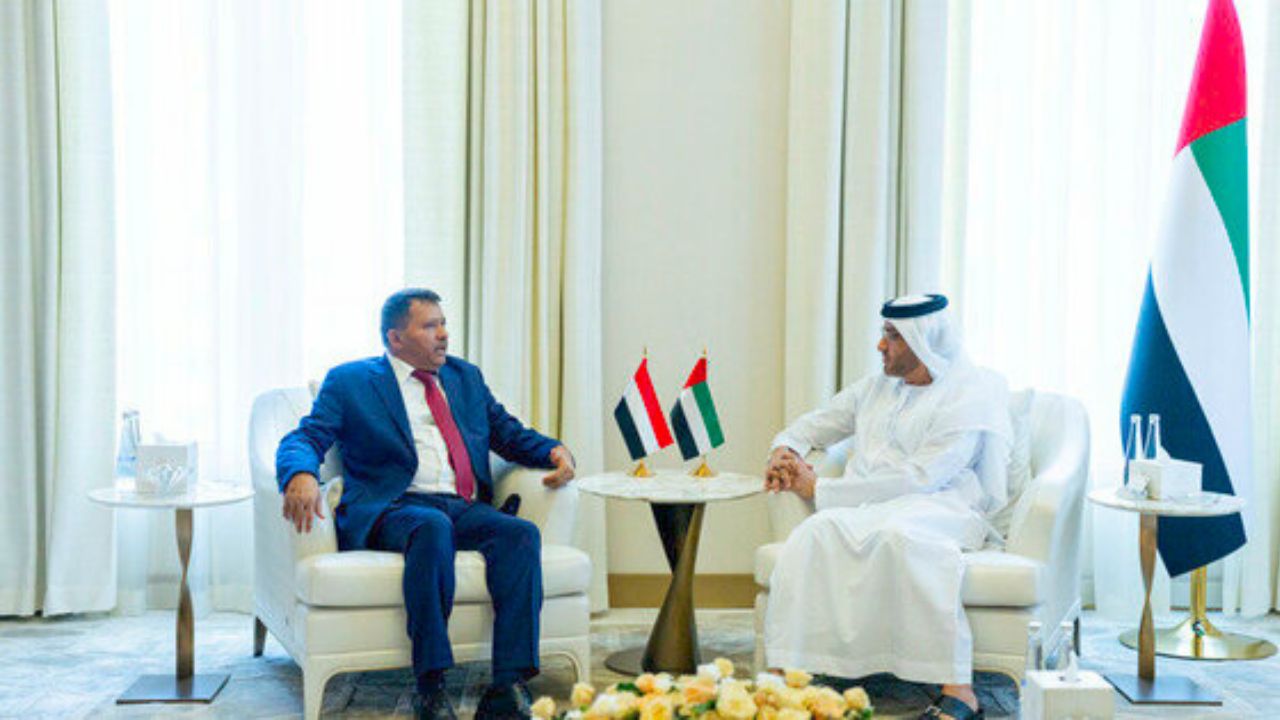
UAE and Yemen Strengthen Legal and Judicial Cooper
UAE and Yemen attorney generals met in Abu Dhabi to strengthen legal ties, enhance public prosecutio

Photo:AFP
The courtroom scene this week in the United Kingdom was tense. Six people stood before a judge, accused of terrorism-related offences for their ties to Palestine Action, an activist group known for staging direct action protests against companies supplying arms to Israel. Each of the accused firmly denied the charges, setting the stage for a major legal and political battle.
While at first glance this may seem like another criminal proceeding, the case actually touches on much larger issues: the definition of terrorism, the boundaries of civil protest, the ongoing war in Gaza, and how governments respond to dissent when it challenges powerful industries.
Who Are Palestine Action and Why Are They on Trial?
Palestine Action is a grassroots activist network formed in 2020, with the goal of shutting down factories and offices of UK-based companies that produce arms or supplies used by Israel’s military.
Their methods are deliberately disruptive: occupying buildings, splashing paint symbolising "blood" on walls, breaking into facilities, and staging long sit-ins that halt production.
The group especially targets Elbit Systems, an Israeli defence manufacturer with multiple facilities in the UK.
Supporters argue that Palestine Action is simply a movement of conscience, trying to stop Britain’s complicity in what they describe as war crimes against Palestinians. Critics, however, see their actions as law-breaking vandalism that disrupts businesses and intimidates staff.
For years, the group has faced arrests and court hearings for trespass and criminal damage. But this new case is different — British prosecutors have escalated the charges to terrorism, a move that significantly changes the stakes.
Why Terrorism Charges Raise Alarm
Terrorism is one of the most serious offences in the UK legal system. It is normally applied to plots of violence aimed at spreading fear or overthrowing governments, not protest movements. The fact that Palestine Action supporters are now facing terror labels has alarmed legal experts, human rights groups, and free-speech campaigners.
If protest that damages property is redefined as terrorism, critics fear it could set a dangerous precedent, effectively criminalising many forms of activism. Climate campaigners, anti-racism groups, and labour movements could all be at risk if disruptive protest is equated with terrorism.
The accused insist they were acting in line with a moral duty, targeting companies that profit from war. One defence lawyer argued in court that the charges were “politically motivated” and part of a wider attempt to silence Palestinian solidarity movements.
The Bigger Context: Gaza and Global Tensions
This trial cannot be separated from the wider war in Gaza, which has brought shocking images of destruction, civilian deaths, and humanitarian crisis. The UK government continues to back Israel diplomatically, while at the same time facing growing pressure from its own citizens to stop arms sales that could be used against Palestinians.
For many supporters of Palestine Action, the protests are not simply about trespass or property. They are about making Britain confront its role in global conflicts. When governments continue business ties with arms industries, protesters believe civil disobedience becomes the only tool left to demand accountability.
Thus, this trial is not only about six individuals — it has become a symbol of the clash between state power and moral resistance to war.
Free Expression vs. National Security
A crucial question now lies before the court and the country: where is the line between protest and terrorism?
The state argues that targeted damage to defence factories is more than peaceful protest; it is a planned campaign that could threaten public order and national security. The defendants argue the opposite — that protest, even when disruptive, is part of democracy and cannot be equated with violent extremism.
Human rights groups such as Amnesty International and Liberty have warned that using terror laws against protesters risks shrinking civic space in the UK, where freedom of expression has already come under pressure from new policing powers.
Political Repercussions
The case is unfolding during a time of wider political debate in Britain.
The ruling government says it needs to crack down on disruptive protest movements, whether climate activists or Palestine campaigners, to protect the economy and public order.
Opposition voices argue that Britain risks sliding into authoritarianism by expanding the definition of terrorism beyond its original purpose.
This legal battle may even affect UK foreign policy. If the trial draws international attention, it could spotlight Britain’s arms trade and intensify calls to ban weapons exports to Israel altogether.
Public Support and Growing Movement
Outside the courtroom, crowds gathered in solidarity with the accused. Placards declared “Activism is not Terrorism” and “Stop Arming Israel.” The trial has already energised Palestine Action’s supporters, transforming the accused into symbols of defiance.
The group itself issued a statement blaming the government for siding with arms companies over human rights. It said activists faced repression because they were successful in exposing and disrupting the arms trade.
This public support highlights a paradox: while the state wants to frame these actions as criminal, many in society see them as acts of courage, even necessary resistance in the face of global injustice.
What Lies Ahead
The six accused have pleaded not guilty, and a full trial is set for next year. If convicted, they could face long prison sentences. But whatever the verdict, the political impact is likely to last longer than the legal one.
If the state wins, it could embolden authorities to use terrorism powers more often against protest groups.
If the activists are acquitted, it may be seen as a victory for the right to dissent.
Either way, the case will shape the future of protest in Britain and send a message across Europe about how far governments are willing to go to control activists who challenge the global arms trade.